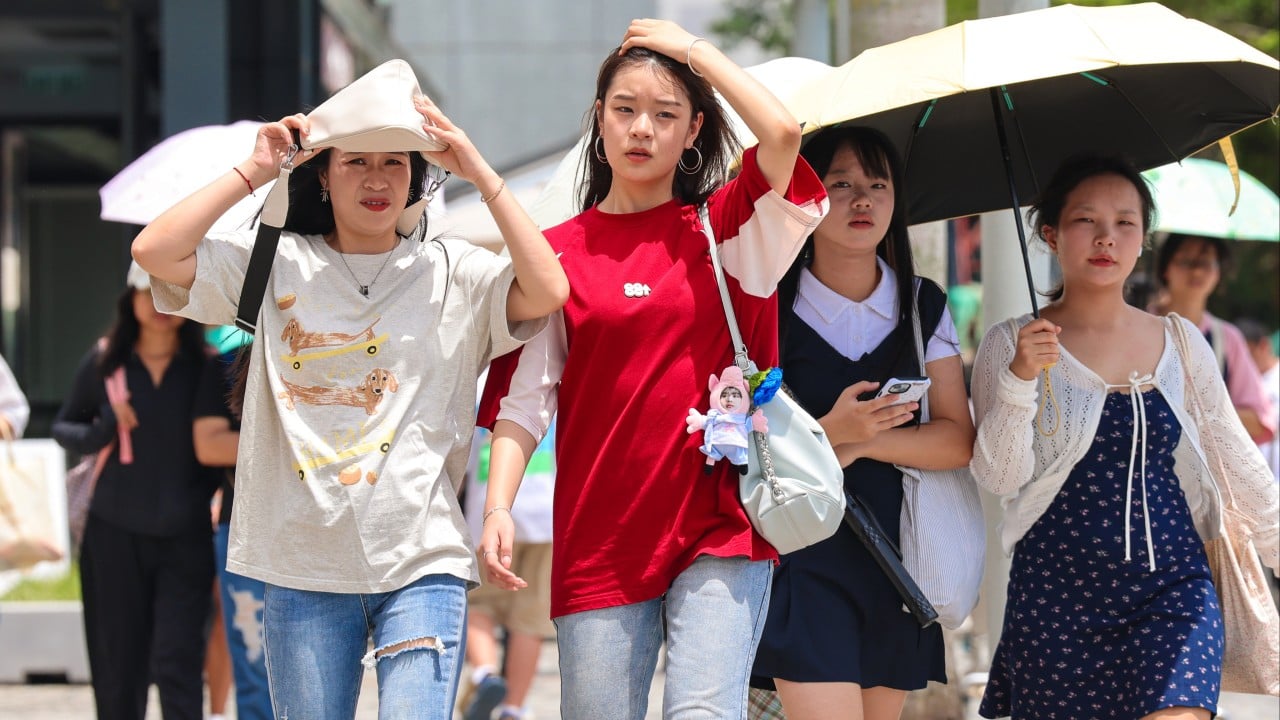Hong Kong welcomed the lunar calendar day of “Chushu” on Thursday, indicating the end of the summer heat and the arrival of autumn coolness, but the weather forecaster said the city might be facing a hotter-than-usual September and October due to climate change.
“Chu” means the end and “Shu” refers to the summer, according to the ancient Chinese calendar used to guide farming.
Ancient inhabitants believed the weather changed every 15 days and the time of the year affected the cycles of insects, plants, rainfall and the length of days – conditions essential for farming activities.
But on Thursday, the Observatory said an anticyclone would bring very hot weather to Hong Kong in the next couple of days. The amber heat stress at work warning was issued by the Labour Department at 1pm.
Temperatures for next week will remain high, reaching 26 to 31 degrees Celsius (88 Fahrenheit), according to the forecaster.
The Observatory predicted that against the backdrop of climate warming, the temperature of August-October 2024 in Hong Kong was expected to be normal to above normal.
Last year, Hong Kong endured one of the second-warmest years on record, with all 12 months hotter than usual.
“Right now we are in a neutral condition … the temperature of August-October 2024 in Hong Kong is expected to be normal to above normal,” the Observatory’s scientific officer Gabriel Fan Man-hei said.
Leung Wing-mo, a former assistant director of the Observatory, said the 24 Chinese Solar Term calendar might not be the most accurate reference for weather forecasts nowadays.
He said as the sun had not been overhead on the equator, Hongkongers still experienced longer daytime than night, which meant autumn was not officially here.

“Although we feel cooler this week because of the rain and clouds, there is a high likelihood of very hot days in the next few weeks,” Leung said.
He said the temperature could be determined by many factors, such as the position of the sun, the typhoon happening in neighbouring areas and global climate patterns like El Nino.
Cheung Yan-Lam, a traditional Chinese medicine practitioner for seven years, said Chushu landed in a period of transition from summer to autumn and advised people to adapt by adjusting their diet.
“Autumn marked withering and slowing down. People should eat light and stay calm to prepare for the change of the seasons,” Cheung said.
She recommended drinking white tea and eating snow fungus, lily bulbs, almonds and pear, which according to traditional Chinese medicine were believed to be able to soothe the respiratory tract.


